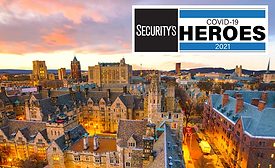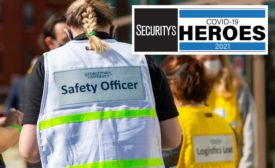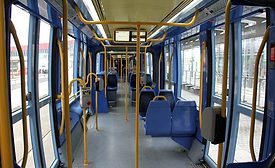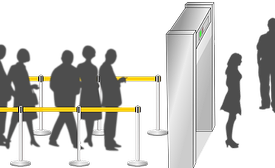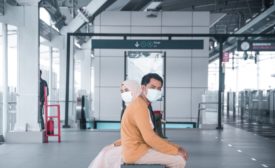Home » COVID-19 response
Articles Tagged with ''COVID-19 response''
COVID-19 Heroes
Associated Grocers of New England’s Risk Management and Loss Prevention teams step up amid pandemic
While enterprises around the globe were shutting down and moving to remote work, frontline food suppliers, transport companies and grocery stores didn’t have that ability. AGNE needed to continue to distribute product to independent grocer members as well as its own stores throughout New England and New York, while also dealing with increased freight and procurement demands into the facility.
August 6, 2021
COVID-19 Heroes
Yale University’s Public Safety Systems and Services team uses existing tech for robust COVID-19 response
By reimagining access control and use of existing system data, Yale’s Public Safety Systems and Services team was able to centralize and organize security technology operations, while providing further value across the entire university.
August 4, 2021
COVID-19 Heroes
Georgetown University’s Office of Emergency Management supports COVID-19 response
Marc Barbiere came to Georgetown about five months before the COVID-19 pandemic, taking over the recently-restructured Office of Emergency Management (OEM) in order to coordinate the University’s efforts to prepare for, respond to, and recover from emergencies.
August 4, 2021
COVID-19 Heroes
Maximizing COVID-19 pandemic response at Armour College
Chief of Police and founder of Armour College, Richard McCann has been responsible for leading the college’s response to the widespread COVID-19 pandemic, immediately putting policies and medical screenings into place, acquiring personal protective equipment (PPE), and distributing medical information to staff and students on all campuses to ensure appropriate safety and health protocols at the college.
June 7, 2021
Sign-up to receive top management & result-driven techniques in the industry.
Join over 20,000+ industry leaders who receive our premium content.
SIGN UP TODAY!Copyright ©2024. All Rights Reserved BNP Media.
Design, CMS, Hosting & Web Development :: ePublishing




